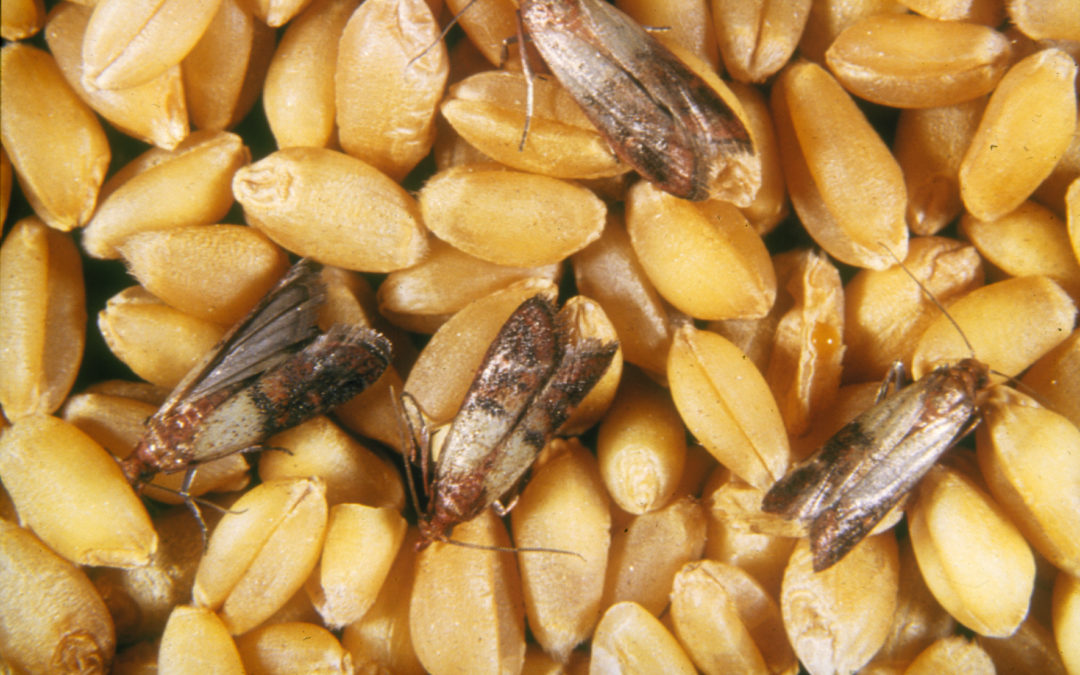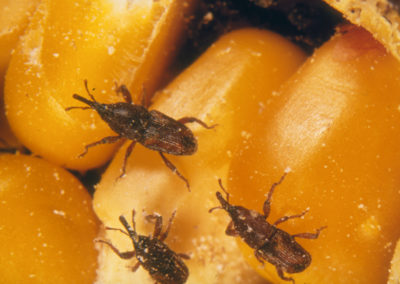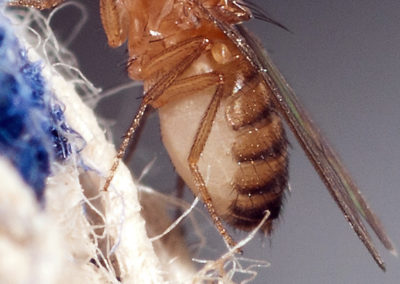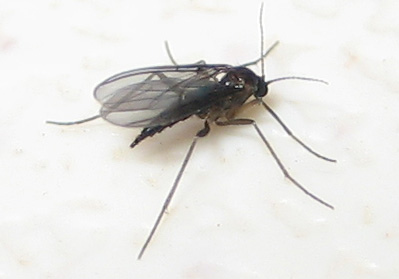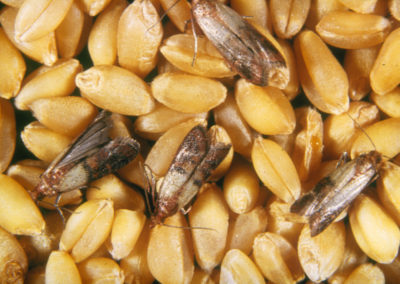Can you Spot the Indian Meal Moth in these Grains?
If you’re like me, seeing something crawling around in your breakfast cereal will make you lose your appetite. It’s true that I find insects fascinating, but that doesn’t mean I want to find them in my food. The problem is, some insects and their eggs have a sneaky way of making their way into packaged foods before we even bring them home from the supermarket. We call these critters pantry pests. There’s a good chance that you have at least one variety of these bugs in your pantry right now.
Maryland’s Pantry Pests
In Maryland, pantry pests include various varieties of beetle (such as the sawtoothed grain, cigarette, drugstore, and flour beetle); flying insects like Indian meal moths and fruit flies; rice weevils; and mealworms. These pests can be found year-round in your pantry although in Maryland they are more active during our mild months of March through September. Left untreated, these insects can spread through the boxes, bags, and bins in your pantry; eat, defecate, and lay eggs in your food; and create an unappetizing infestation.
What to Do When You See Pests in Your Pantry?
The first thing you should do when you spot pantry pests is to remove their habitat. If you see tiny gnats or flies buzzing around, they’ve probably taken up residence in a spoiled, rotten, or ripening vegetable or piece of fruit. If you see larvae or bugs in your rice, flour, pasta, or grains, throw the product away. However, it often requires a professional to diagnose the source of the infestation. Making sure they don’t return takes a more targeted approach.
We can Alleviate Your Pantry Pest Problem using an Integrated Approach
As a board-certified entomologist, I don’t take a “one-size-fits-all” approach toward helping Marylanders keep their homes insect-free. At Eco Care we take an integrated, smart approach that focuses on eliminating pests’ habitat in your home and making your home less hospitable to bugs. We’re familiar with the habits and lifecycles of these common insects. Moths and beetles, for instance, go through four developmental stages (egg, larva, pupa and adult). Identification is key as each type of pantry pest infest specific food items. Our technicians are trained to know exactly what to look for. They can spot their hiding places and help get rid of them for good.
If you suspect you have pantry pests, make the smart decision and put science to work to alleviate the problem quickly and safely. Contact us today and we’ll tell you exactly what’s bugging you and how to stop it!


